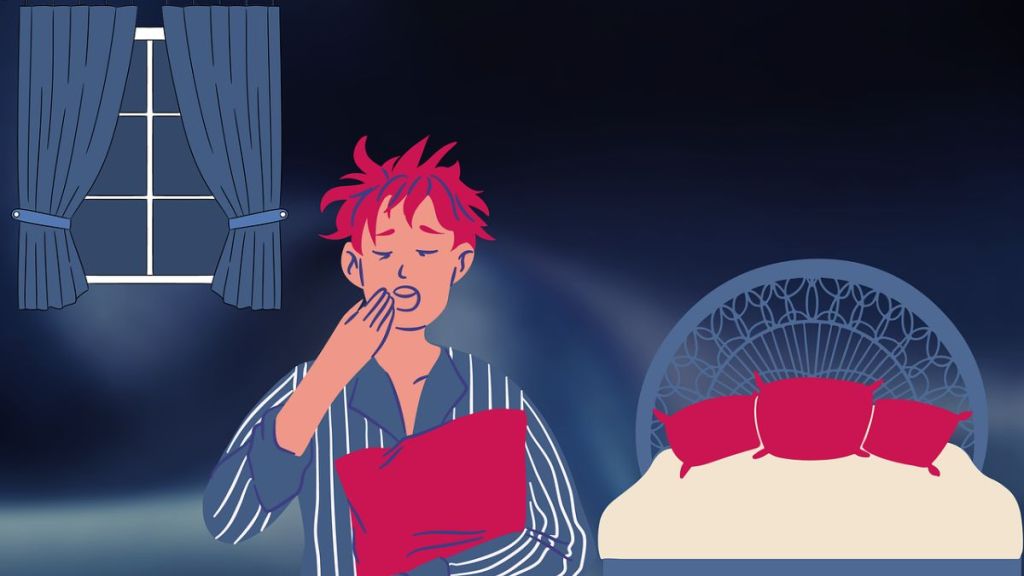Struggling with insomnia, or is it just in your head? Many people who believe they haven’t slept a wink could actually be suffering from paradoxical insomnia, a unique disorder where people sleep normally or close to normal, but think they were awake the entire time.
In a case study detailed in The Guardian, Hannah Scott, a sleep researcher at Flinders, tested paradoxical insomnia in a woman who fell into a deep sleep for a considerable period but claimed she couldn’t sleep at all. For the purpose of this experiment, the woman was connected to equipment measuring her brain activity, eye movement, heart rate and muscle activation. While the woman fell asleep 30 minutes after closing her eyes, the usual time duration during such experiments, she has no memory of falling asleep at all and insisted she didn’t sleep despite the evidence.
While the exact reason of why this happens isn’t known, it can affect people’s moods and add to sleep anxiety. According to the Cleveland Clinic, many people with anxiety, depression, PTSD, and sleep apnea could be at risk of this condition.
What is paradoxical insomnia?
“Paradoxical insomnia, also known as sleep state misperception, is a unique sleep disorder characterized by a mismatch between subjective sleep experience and objective sleep assessments,” Dr Ravi Shekhar Jha, Director & HOD – Pulmonology & Sleep Medicine, Fortis Escorts Faridabad, said in an interview with The Financial Express.com
Dr Jha explains that individuals with this disorder strongly believe they are not sleeping, or that their sleep is poor and insufficient, despite clinical evidence showing they have a normal or adequate sleep duration and quality during sleep studies.
How paradoxical insomnia differs from insomnia
Insomnia is on rise due to increased stress, more screen time, and irregular work hours, according to National Institutes of Health. However, it’s very much possible that in many cases, people could be sleeping well, but their brain may be telling them otherwise. This is usually quite emotionally distressing.
However, paradoxical insomnia is unlike typical insomnia, as those suffering from it do not experience the associated daytime impairment, such as excessive sleepiness, fatigue, or cognitive problems, that would be expected if they were actually chronically sleep-deprived, says the expert.
How to know if your sleep deficit is real or imaginary
Diagnosis can be tricky and requires thorough analysis of sleep history and overnight sleep studies or polysomnography.
“People with paradoxical insomnia overestimate time taken to fall asleep and underestimate their total sleep time compared to objective findings. Typically, the diagnosis is confirmed when the level of perceived insomnia is grossly disproportionate to the findings from objective monitoring or the absence of daytime functional impairment,” says Dr Jha.
Signs of paradoxical insomnia
Persistent complaint of little or no sleep despite normal sleep study findings, heightened awareness or misperception of wakefulness during the night, absence of significant daytime symptoms related to sleep deprivation, and emotional distress due to the belief that one is not sleeping are some of the signs of the condition.
Sometimes, partners or family members may notice paradoxical insomnia, as people may incorrectly complain that they didn’t sleep even though they were clearly asleep.
What causes it
It is not easy to pinpoint an exact cause, but research suggests that it could be linked to anxiety, depression, and cognitive hyperarousal. “Some research suggests a link to altered brain processing regarding internal experiences of sleep and wakefulness,” says Dr Jha.
Can this be treated?
“Paradoxical insomnia is primarily managed with cognitive behavioral therapy for insomnia. Therapy addresses irrational sleep beliefs, excessive nighttime monitoring, and stress. Education about sleep and reassurance can help, as can relaxation techniques and good sleep hygiene. Medication is generally not indicated and may be avoided to prevent unnecessary pharmacologic intervention,” says the expert.


